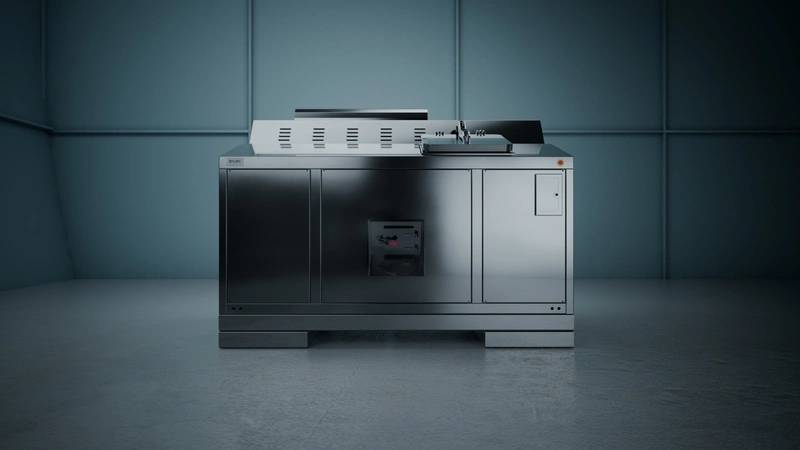Evac Group: Dehydro Meets Waste Management Needs of Smaller Vessels
Evac Group, a leader in sustainability technologies and solutions, has launched Dehydro, an onboard waste management system designed to meet the specific needs of smaller vessels.
Traditional onboard waste systems typically require high volumes of wet waste to be cost-effective, which makes them impractical for smaller vessels. The Dehydro system, using dehydration technology, makes onboard waste treatment viable for smaller ships, reducing the need for overboard discharge or costly offloading to land-based facilities. This significantly reduces waste volume, helping vessels meet increasingly stringent environmental standards and delivering a cost-effective solution.

Evac’s Dehydro system reduces wet waste volume by approximately 80% through its dehydration process, transforming wet waste into a sterile, dry powder. This eliminates the need for additional treatment and simplifies offloading, making waste management easier and more cost-effective through its compact design, which is suited to vessels producing between 50 and 1,000 kg of wet waste per day. This includes small merchant vessels, OSVs, ferries and passenger vessels, and large yachts.
Many smaller vessels rely on outdated, unsustainable waste disposal options, requiring them to either discharge waste into the sea where permitted or transport it to land-based facilities, both of which have significant environmental and financial costs.
The launch of Dehydro also comes at a time of stricter regulations on waste disposal to protect marine ecosystems, underlining the need for more innovative waste management solutions for smaller vessels that are more likely to operate closer to shore, where the environmental consequences of non-compliant waste discharge can be extremely serious.
Dehydro is a significant step toward helping smaller vessels meet evolving environmental standards, including compliance with MARPOL Annex IV and Annex V regulations, which govern sewage and garbage discharge, including food waste, from ships, as well as EU waste management rules on port reception facilities, and other local and national regulations. There are also a growing number of Special Areas under MARPOL, which are subject to higher levels of protection from pollution risks, placing more stringent obligations on vessels in these locations.
As maritime regulations push for zero discharge, Evac Dehydro also reduces the emissions associated with the transportation of offloaded waste by up to 85%, compared to landfilling. It minimizes reliance on discharge and offloading, protects ecosystems, and lowers costs. With high-quality reject water requiring little treatment, it also helps to extend equipment life and ensures future compliance.
Evac’s waste management systems are already installed on over 20,000 vessels worldwide. The new Evac Dehydro system incorporates a high-temperature drying process of up to 180°C to sterilize and dehydrate organic waste. The system also incorporates features such as, embedded crushing technology and patented de-odorizing methods to handle complex odors, generating a sterile, dry by-product.
